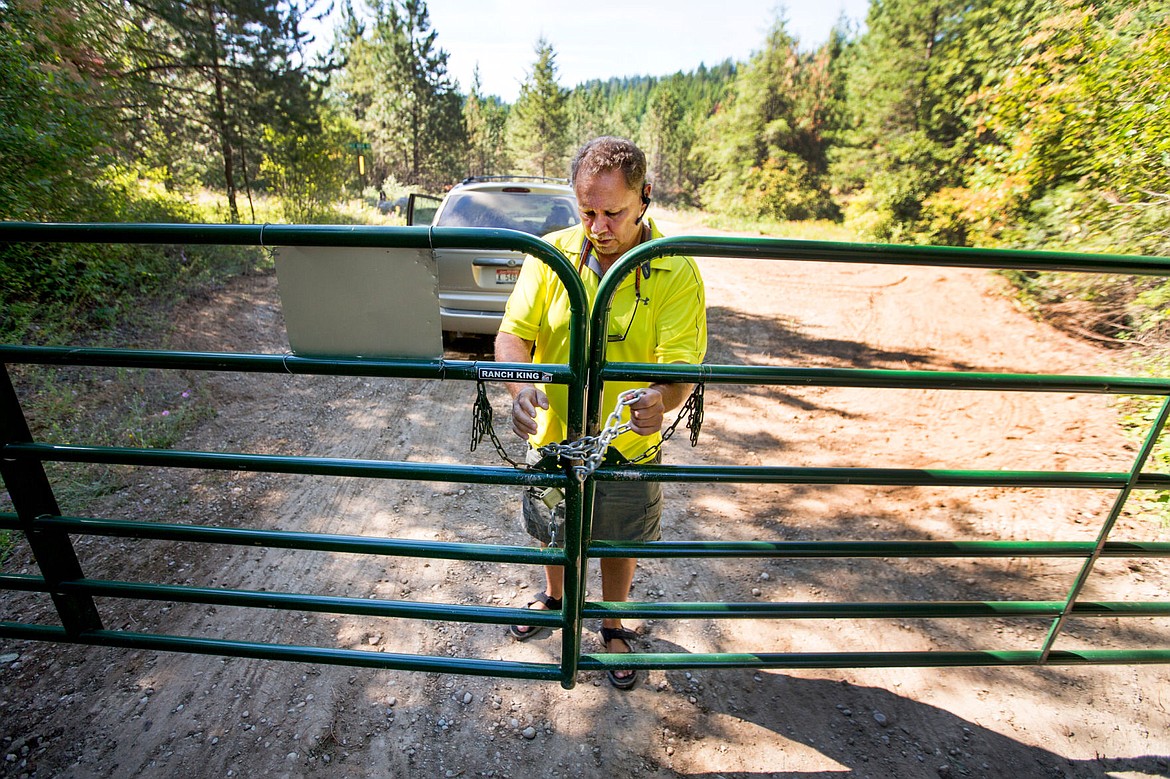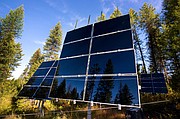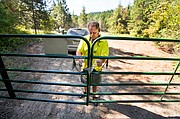Welcome to the American Redoubt
Feds, liberals and Californians, keep out.
Those words, a photo caption published in the Economist, were draped below the image of a decrepit barn at the base of a North Idaho mountain range.
The prominent, London-based magazine — an international publication with a circulation exceeding 1.5 million — featured Coeur d'Alene and surrounding areas in a 1,400-word piece published Aug. 6.
Its premise: this region is rife with survivalists and political refugees.
In the story "The Last Big Frontier: A movement of staunch conservatives and doomsday-watchers in the Inland Northwest is quietly gaining steam", the Economist's unnamed author interviewed seven locals, including a Coeur d'Alene gunsmith, a Sandpoint pastor and a pistol-toting, liberal-loathing Bonners Ferry woman.
Some of the interview subjects subscribe to the theories of best-selling survivalist author and former U.S. Army intelligence officer James Wesley Rawles, originator of the political migration movement dubbed “American Redoubt.”
The Redoubt movement designates Idaho, Montana, Wyoming, eastern Washington and eastern Oregon as a safe haven for conservative, libertarian-leaning Christians and Jews preparing for a societal collapse.
Rawles' manuscripts are referenced throughout the article.
"Thousands of families have answered the call, moving to what Mr. Rawles calls America's last big frontier and most easily defendable terrain," one excerpt reads. "Were hordes of thirsty, hungry, panicked Americans to stream out of cities after, say, the collapse of the national grid, few looters reach the mostly mountainous, forested and, in winter, bitterly cold Redoubt."
A handful of Coeur d'Alene residents who've read the story, however, believe it has a far-reaching narrative.
Brent Regan, chair of the Kootenai County Republican Central Committee and a designer and builder of electromechanical devices including cars and airplanes, said he thinks the article attempts to characterize and label what’s happening in North Idaho and the Northwest without taking a deeper, more historic look at the situation.
“To understand you need to go back to the founding of the country,” Regan said.
People who move to the region today are often driven by the same forces that helped form the U.S., he said. They are drawn by the promise of independence, the wilderness and low population density.
But it’s not just survivalists this appeals to, Regan said.
“I think it spans the entire culture. That’s evidenced by these really remarkable people who are coming together here,” he said, pointing to the Innovation Collective, a growing group of tech creators and inventors making an impact on the region.
He said there is a high concentration of intelligent people in the area who embody the American spirit of entrepreneurialism and innovation.
“Preparedness and preppers, I think that’s a secondary effect,” Regan said.
Not that being prepared is a bad thing.
Regan said when you consider what would happen if a catastrophic earthquake hit a highly populated area like the Los Angeles Basin, it makes sense that people would opt to live in the mountains of North Idaho. He said a natural disaster of that magnitude would turn the LA area into a fishbowl.
"Within three days, people are going to start shooting each other for food,” he said.
Still, Regan said he disagrees with the idea that a significant amount of movement to the region is driven by doomsday fears.
“The American Redoubt idea — I think that’s just some people trying to put a box around it, and it’s not something you can put a box around,” Regan said. “If you think about it, the idea that people who are independent would cluster together, that’s an oxymoron.”
Chris Walsh of Coeur d'Alene-based Revolution Realty is in the business of off-the-grid preparedness.
The affable, right-wing broker has tapped into a sizable market and wide-ranging demographic of survivalist-minded people looking for plots of land in the Idaho Panhandle. He averages 140 sales a year.
Walsh's business phone's ringback tone offers callers the Revolutionary War tune, “Yankee Doodle.” His glossy, graphic-heavy business card features the Constitution, a bald eagle and the American flag.
He proudly discriminates against liberals who seek his services in relocating to the Inland Northwest. Discriminating on the basis of political persuasion is legal, he said, since it's not a protected class.
This approach makes him more appealing to a clientele ranging from bankers, attorneys, doctors and ex-military personnel. There's diversity too, he said, with African Americans, Hispanics, Europeans and Asians among his buyers.
They're all conservative, though, and a small percentage match the stereotype of the paranoid, hostile doomsday preppers derived from television.
"There's a huge group of people in the United States that are doing this in some form," Walsh said. "We use prepper as a word that describes them, but it's not really accurate in terms of a word. It's pretty vague because they come in every form.
"There's very few of those doomsday preppers walking around with a gas mask and Kevlar helmet, packing a .50 cal.," Walsh said with a laugh.
Most of Walsh's sales are in Boundary and Bonner counties. In Kootenai County, he's sold properties dotted through the most remote parts of Hayden, Athol and Spirit Lake. Aesthetically, some properties resemble cabins or newly-constructed bungalows, solar-powered with water wells.
One property in construction near Spirit Lake featured a nuclear bomb shelter.
Walsh's clients typically pay in cash and generally buy 5 to 50 acres. For those relocating, the move typically follows an adverse situation at a former residence.
Walsh, who said he was enlisted in the U.S. Army from 1979-1984, recalled an elderly Florida client who relocated to North Idaho after a neighbor shot and killed his dog.
"They usually come after something triggers them," Walsh said. "There are some great people that just want to be off the grid and also be ready for when the s--- hits the fan."
Walsh, who was also mentioned in the Economomist story, said he believes the piece has a lot of validity.
Others think that by painting a narrow picture, the article does the region a disservice considering North Idaho is still often viewed by outsiders as a hotbed of white separatists devoid of growing economic hubs such as Coeur d'Alene and Sandpoint.
Coeur d'Alene human rights activist Tony Stewart, who helped lead the effort that disbanded the Aryan Nation enclave that once existed in Hayden, said he believes the Economist's story was more anecdotal and rebuked its research.
"The author apparently conducted very limited interviews with a few individuals who are either Redoubt members or persons that have had business transactions with individuals with a particular political bent," Stewart said.
Coeur d'Alene Mayor Steve Widmyer said people move to Coeur d’Alene for a variety of reasons.
"The most common reason is they enjoy the quality of life. I have lived here for over 50 years and never heard of anyone moving here for the reasons mentioned in the article,” Widmyer said.
Local entrepreneur and co-founder of Innovation Collective Nick Smoot is cognizant of the survivalist types, but doesn't think they're anywhere near a sole depiction of the area.
"Look, Idaho is all about independence," Smoot said. "The Economist took that to an extreme showcasing a few folks who want to live in the hills," Smoot said. "Good for them. In all reality, this area is more about 'I'll be me and you be you.'"
Staff writer Maureen Dolan contributed to this story.





